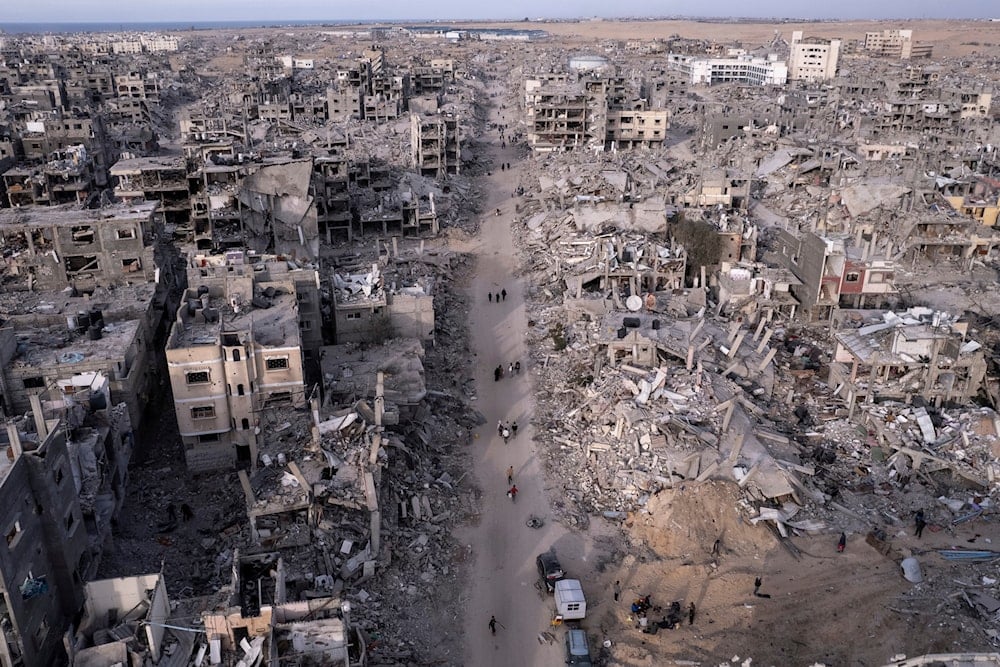Palestinians in Gaza returning to nothing after war: FT
Returning to lands of rubble, Palestinians in Gaza are returning to nothing following the Israeli war on the enclave, after the occupation deliberately destroyed health facilities, schools, and residential complexes.
-

An aerial photograph taken by a drone shows Palestinians walking through the destruction caused by the Israeli air and ground offensive, in Rafah, Gaza Strip, on January 21, 2025. (AP)
After months of war, around two million displaced Palestinians have been desperate to return to their homes.
"Donkey cart drivers, the main taxi service since the besieged enclave has been deprived of fuel, in recent months would call out the names of places all Gazans knew could not be reached — such as Beit Hanoun in the north, engulfed in fighting — as an expression of the longing to return," according to the Financial Times.
A ceasefire that took effect on Sunday finally permitted some to return. Yet, from Rafah in the south to Jabalia in the north, the sense of relief was overshadowed by the magnitude of the devastation. As reported by FT, roads, shops, and parks had been replaced with fields of sand, twisted metal, and crumbling concrete, symbolizing a profound loss of the life they once knew.
The 15-month war has inflicted unprecedented devastation on Gaza, surpassing the impact of any prior Israeli offensive. According to Palestinian health authorities, approximately 47,000 people have been killed since "Israel" initiated its assault on the enclave on October 7, 2023.
Approximately 1.9 million of Gaza's 2.3 million residents have been displaced. According to the UN, 92 percent of homes have been destroyed or damaged, leaving the territory buried under more than 50 million tons of rubble. Clearing the debris is estimated to take up to 21 years and cost around $1 billion.
For many, returning home brings a new wave of heartbreak. Palestinians returning to their abandoned neighborhoods are discovering the bodies of loved ones buried beneath the rubble of their homes.
Gaza’s Civil Defense authority estimates that 10,000 bodies remain trapped under the debris.
A clear plan for post-war reconstruction has yet to emerge. The enormous task of clearing rubble hinges on the duration of the ceasefire, currently in its initial six-week phase. The second and third phases of the ceasefire, essential for a lasting end to the war, remain uncertain and subject to negotiation. Without a definitive resolution, reconstruction efforts cannot move forward.
According to FT, compounding the uncertainty is the lack of clarity on funding, leaving Palestinians to grapple with the prospect of prolonged displacement in tents amid the wreckage of their homes.
Read next: In numbers: Impact of Israeli genocide on Gaza since October 2023

 3 Min Read
3 Min Read








